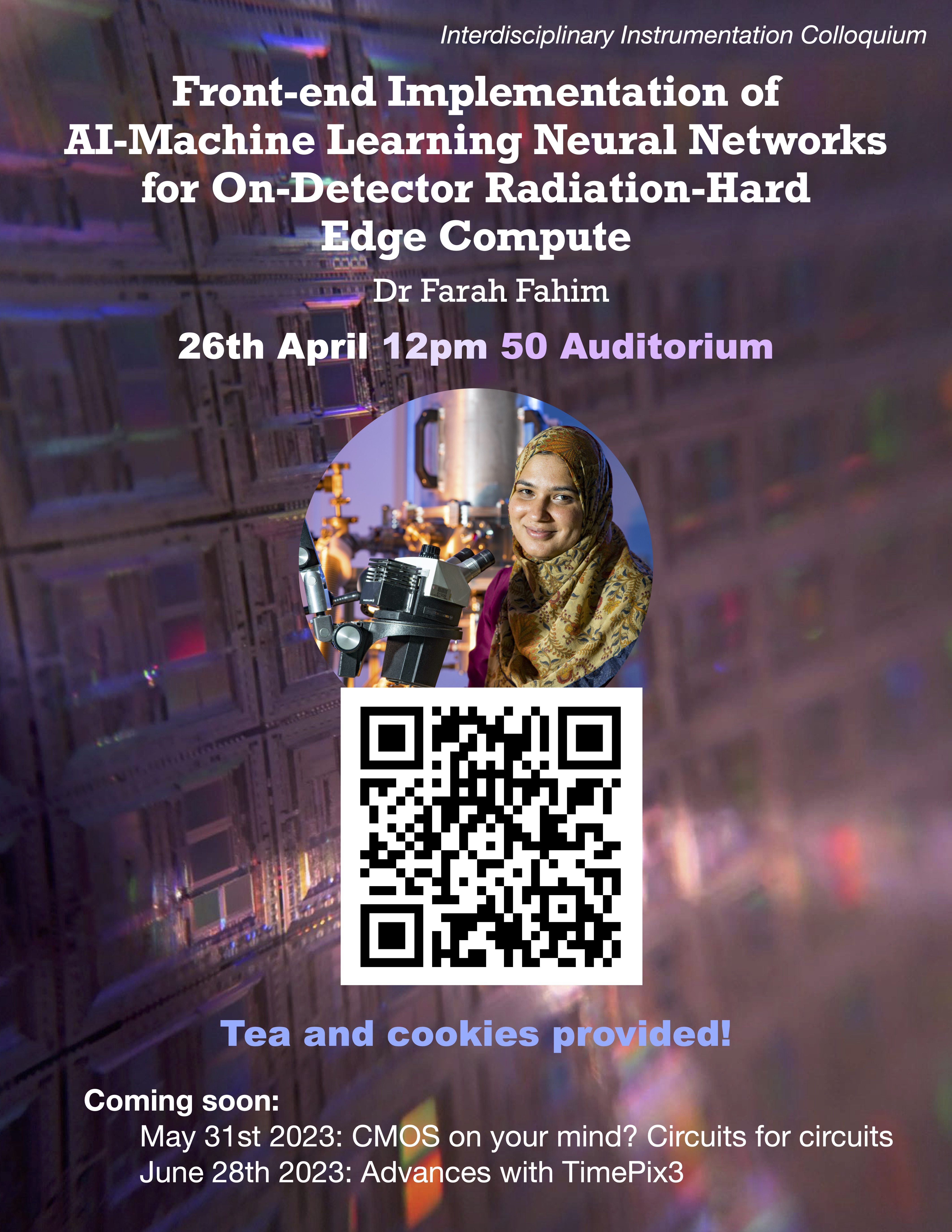Farah Fahim (Fermilab): Front-end Implementation of AI-Machine Learning Neural Networks for On-Detector Radiation-Hard Edge Compute
Auditorium
50

The research focus on detectors in the last few decades has resulted in breakthroughs in precision and speed, of sensing instrumentation with impactful advances in scientific applications and theories. A common paradigm across many scientific disciplines has been to increase the resolution and area of detectors in order to increase either the statistics or the sensitivity of the experiment. This demand for increasingly higher sensitivity, along with advances in the design of large state-of-the-art systems, has resulted in rapidly increasing data bandwidth, while diminishing the feasibility of data transfer via conventional methods. Moreover, the transmission of large volumes of data is more inefficient than processing it at source. AI Machine learning (ML) using deep neural networks (NN) has been demonstrated among many domains as a powerful tool for data compression, processing and analysis. Therefore, data processing within the front-end readout integrated circuits (ROICs) is greatly desirable.
The main experimental challenges include real-time latency constraints, operation in extreme environments with limited power and area budgets. Frontend ROICs have adopted early digitization, such as in-pixel ADCs and TDCs, they however still rely on data transfer from pixel to periphery, on-edge data serialization, and high-speed off-chip data transfer with several Gbps links. Integrating NNs directly in the pixelated front-end ROICs would result in significant reduction in off-chip data transfer by 2 to 3 order of magnitude, by filtering information and then classifying raw data into physics information. Moreover, taking advantage of neuromorphic, mixed analog-digital signal processing and in-memory compute techniques will enable super-efficient vector matrix multiplication (VMM), further reducing computation energy.
The objective of Dr Fahim's research is to create highly efficient on-chip implementations of real-time machine learning algorithms to enable data processing at source, while operating in extreme radiation (up to 1 Grad) and resource constrained environments.
Dr Farah Fahim is a principal engineer specializing in mixed signal application specific integrated circuit design at Fermi National Accelerator Laboratory. She is currently the Head of Microelectronics Division in the Emerging Technologies Directorate and an Adjunct Professor at Northwestern University Department of Electrical and Computer Engineering.
For over 15 years Farah has been developing low noise, high-speed readout and control electronics for detectors which operate in harsh environments such as high ionizing radiation for a wide range of applications. Her current research pursuits include on-chip artificial intelligence for data processing at source and designing ultra-low power, compact readout electronics for modular scalable cryogenic quantum control systems.
Before joining Fermilab, Farah worked at the Rutherford Appleton Laboratory, UK. Farah has a PhD in Electrical Engineering from Northwestern University, MBA from Open University, UK, M.Tech and B.Tech from University of Limerick, Ireland. She co-organized the first workshop on cryogenic electronics for quantum systems (IceQubes) in 2019 and then added this workshop to the IEEE Quantum week. She received the best presenter award at IEEE Nuclear Science Symposium in 2016. She is also a recipient of the DOE Early career research award.
